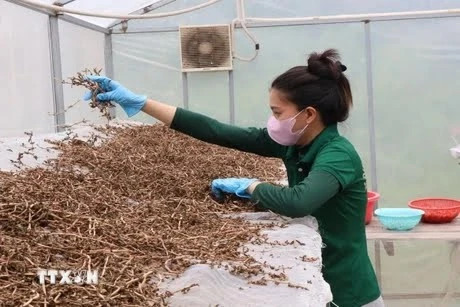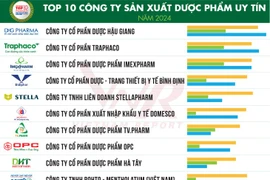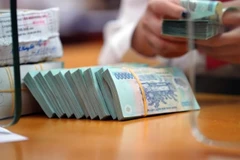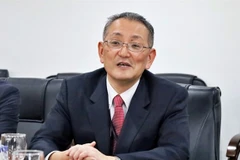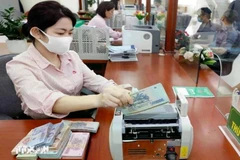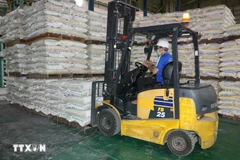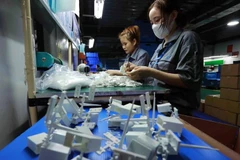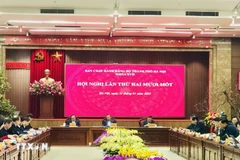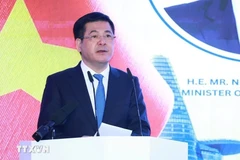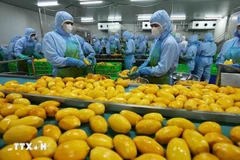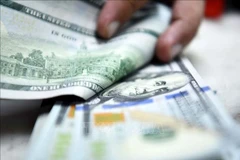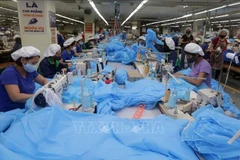Davos (VNA) - The Ministry of Planning and Investment, the Ministry of Foreign Affairs, and FPT Corporation co-hosted a working breakfast in Davos, Switzerland on January 22 to discuss the future and opportunities of Vietnam's pharmaceutical industry in the new era.
The event brought together Politburo member and Secretary of the Ho Chi Minh City Party Committee Nguyen Van Nen, senior officials from Vietnamese ministries and localities, and representatives from global pharmaceutical giants like AstraZeneca, Bayer, and Merck, alongside leading Vietnamese pharmaceutical companies.
They noted that Vietnam’s pharmaceutical sector has been growing at an average annual rate of over 10%, with market value rising from 2.7 billion USD in 2015 to 7 billion USD in 2025, and a forecast of 10 billion USD by 2026.
The country is home to over 238 WHO-GMP-certified drug manufacturing plants, 17 EU-GMP-standard factories, more than 5,000 wholesale distributors, and over 62,000 retail outlets.
Domestically produced pharmaceuticals now meet around 50% of the national demand while gaining increasing recognition in international markets.
Speaking on behalf of Prime Minister Pham Minh Chinh, who is in Davos for the 55th Annual Meeting of the World Economic Forum, Nen underscored the pharmaceutical industry’s dual importance as a public health cornerstone and an economic growth driver. He noted that in the face of global challenges such as pandemics, aging populations, and rising healthcare needs, technology and innovation are reshaping the pharmaceutical landscape.
The Vietnamese Government’s National Strategy for the Development of the Pharmaceutical Sector by 2030, with a Vision to 2045, outlines a path to position Vietnam as a leader in the regional pharmaceutical industry. Key objectives include modernising production, ensuring medicine security, boosting exports, and integrating into global supply chains.
Major priorities of the strategy include advancing research and development (R&D) to create high-value pharmaceutical products, developing herbal medicines, high-tech drugs, and innovative treatments such as biologics and vaccines, conserving and developing rare, indigenous medicinal resources, and introducing special investment incentives, such as preferential policies for projects exceeding 120 million USD.
Nen emphasised that digital transformation and technology will be central to the pharmaceutical sector’s growth. Emerging technologies like artificial intelligence (AI), big data, and the Internet of Things (IoT) hold the potential to optimise drug research, production processes, and supply chain management, he said.
He also highlighted Vietnam's focal points in the process of boosting the industry’s growth, including creating innovation ecosystems, high-tech pharmaceutical research centres, and dedicated pharmaceutical industrial zones, strengthening collaborations between enterprises, research institutions, and universities, and training a specialised workforce in AI and digital transformation for the pharmaceutical sector.
Vietnam aims to ensure its pharmaceutical industry meets international standards, improve intellectual property protections, and design transparent, efficient regulatory systems for drug procurement and distribution.
The official called on international pharmaceutical corporations to strengthen partnerships and expand investments in Vietnam. He highlighted opportunities for collaboration in high-tech drug manufacturing and resilient supply chain development.
Reaffirming PM Chinh’s principle of “harmonised benefits and shared risks”, Nen pledged Government’s support for foreign investors to ensure long-term, sustainable operations in Vietnam./.
